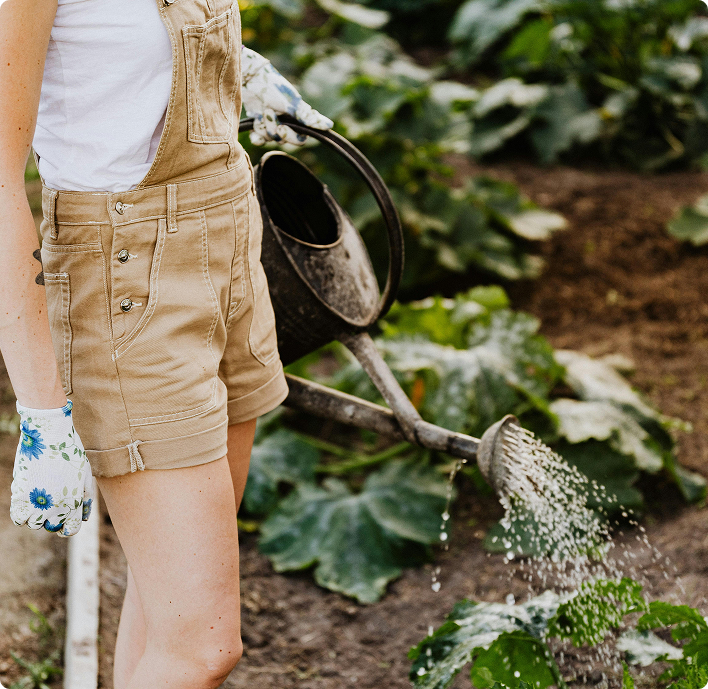Aim to soak the soil deeply to encourage roots to grow downward. Shallow, frequent watering creates lazy plants with shallow roots.
Adjust for the seasons:
Here in Zone 7, spring and fall tend to be cooler and wetter, so you’ll likely need less supplemental watering. But summer? Oh boy, when the heat cranks up, your garden might need some super soaks.
In-Ground vs. Raised Beds
In-Ground Gardens:
These gardens typically retain moisture better than raised beds, especially if your soil is rich in organic matter. That means they may require less frequent watering since the ground acts as a natural reservoir. Be sure to check the soil deeper down to ensure water is reaching the roots.
Above-Ground Raised Beds:
Raised beds often drain more quickly than in-ground gardens, especially if they’re filled with lightweight soil mixes. As a result, they may need more frequent watering, particularly during hot or dry spells. Adding mulch and organic matter can help slow evaporation and retain moisture.
Pro Tip:
Mulch is your garden’s bestie. A layer of mulch helps retain moisture, keeps roots cool, and cuts down on weeding (bonus!). Plus, it breaks down over time, adding nutrients to your soil. Consider using straw, wood chips, or even shredded leaves as mulch to give your veggies a boost.
How Much Sun Does My Vegetable Garden Need?
Vegetables are basically sun worshippers. Most need at least 6-8 hours of full sun a day to thrive, but let’s break it down:
Full-Sun Lovers:
Tomatoes, peppers, cucumbers, squash, and melons want all the rays. Plant these guys in the sunniest spot in your garden. They’re the divas of the veggie world and won’t settle for anything less than center stage.
Partial-Sun Champs:
Lettuce, spinach, kale, and broccoli thrive with a little shade, especially in the afternoon. This is handy in Zone 7 summers when midday sun can be pretty intense.
Shade-Tolerant Troopers:
Herbs like parsley, mint, and chives do well in partial shade, making them perfect for those slightly darker corners of your garden.
Sunlight tip: If your garden doesn’t get enough natural light, consider planting in portable containers so you can chase the sun around your yard. Alternatively, use reflective materials like white stones or mirrors to maximize light exposure.
Zone 7 Bonus Tip
Protect during heat waves:
When summer days push past 90°F, in addition to extra deep soaks, consider some temporary shade cloth to prevent your veggies from wilting—especially in the afternoons.
Experiment and Have Fun
Gardening is as much about learning as it is about growing. Try out different planting techniques, experiment with new veggie varieties, and don’t be afraid to make mistakes. Maybe you’ll discover that your zucchinis love a little extra water, or that your tomatoes thrive with a bit of afternoon shade. Every garden is unique, and Zone 7’s forgiving climate gives you plenty of room to experiment.
Remember: gardening isn’t just about growing plants; it’s about growing yourself, too. (SO corny but true.) So take a deep breath, soak up the sun, and enjoy every moment of your garden journey.

